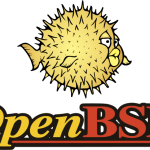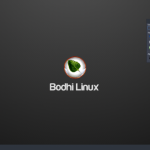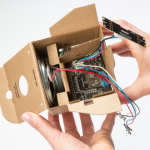Microsoft becomes open source Cloud Foundry Foundation Gold Member

Microsoft is an open source champion. It is weird to say, I know, but it is fact. Yeah, the company makes most of its money from closed source technologies, such as Windows and Office, but it is an open source contributor as well. It has made many quality open source projects available, such as Cognitive Toolkit and PowerShell. Heck, it was even revealed that Microsoft has the most open source contributors on GitHub! Its support for Linux on Azure deserves major kudos too.
Today, Microsoft takes its open source focus even further. You see, the Windows-maker has become an official Cloud Foundry Foundation Gold Member. Microsoft is in excellent company, with other big-name Gold Members, such as Google, Ford, and Huawei.
Microsoft Azure now supports OpenBSD

Microsoft continues to embrace not only Linux but BSD too, as it just revealed that Azure has added support for OpenBSD. The latest move comes more than two years after the cloud platform officially started to support FreeBSD virtual machines.
The OpenBSD support in Azure comes as a result of a collaboration between Microsoft and network security vendor Esdenera, which also sees the release of an OpenBSD-based firewall in the Azure Marketplace.
OpenELEC 8.0.4 Kodi-focused Linux distro now available for PC, Raspberry Pi, WeTek, and more

If you are looking for a dedicated media box for your living room or bedroom, the first thing you should consider is Kodi. This is a media center software package that delivers a very focused consumption experience. It can even be customized with "addons," although some of them can be used for piracy -- something we do not condone.
Unfortunately, Kodi is not its own operating system, meaning it has to be run on top of an OS. Sure, you could use Windows 10, but that is overkill if you only want to run Kodi. Instead, a lightweight Linux distribution that only serves to run the media center is preferable. One of the most popular such distros is OpenELEC. It can run on traditional PC hardware, but also Raspberry Pi, and, my favorite -- WeTek boxes. Today, version 8.0.4 achieves stable release. It is a fairly ho-hum update, focusing mostly on fixes and stability.
Open source 'Microsoft Cognitive Toolkit' for deep learning reaches version 2.0

Last year, Microsoft released an open source project called "Cognitive Toolkit." This toolkit was designed with a focus on deep learning and artificial intelligence.
Today, after a fairly long beta period, Microsoft Cognitive Toolkit is finally updated to version 2.0. Not only does this production release have new features, but bug fixes too. Unfortunately, the release isn't entirely backwards compatible due to deprecated and renamed aspects of the toolkit.
Bodhi Linux 4.2.0 Ubuntu-based operating system now available

Bodhi is an interesting Linux distribution thanks to its lightweight nature. If you have an older PC that isn't particularly powerful, the operating system could breath new life into it. Unlike some other distributions that are light on resources, Bodhi is not ugly -- its Moksha desktop environment looks rather modern. I highly recommend giving the OS a try.
Today Bodhi reaches version 4.2.0. It is quite the boring release, as there isn't much to it. It is merely a rollup, incorporating many of the updates that were released since the previous stable version, 4.1.0. If you are already running Bodhi and have been installing updates, there is no reason to bother -- this is more for those that aren't already running the OS.
Google makes Firebase SDKs open source

Today was day one of Google I/O and there was no shortage of news. To name a few, the search giant is bringing its assistant to iPhone, Smart Reply to Gmail on mobile, and voice-calling to Google Home. These things should be very interesting to both consumers and technology enthusiasts.
With I/O being a developer conference, however, not all of the news is necessarily consumer-focused. Case in point, there was some rather big developer news that didn't get as much attention. You see, Google announces that it is making five of its "Firebase" SDKs open source.
Facebook accused of stealing technology for Open Compute Project

Facebook is set for a potentially explosive legal case after the company was accused of stealing proprietary technology.
In a California district court, a judge has laid out a detailed timeline regarding the upcoming legal battle between Facebook and UK data center company BladeRoom over allegations that the social network stole the latter's server and rack technology for use in its own Open Compute Project.
GNOME Recipes for Linux comes to Apple macOS

GNOME is not just a desktop environment, but a collection of apps too. Some are useful, while others... not so much. Case in point, GNOME has a new program called "Recipes." It is quite literally a searchable database of cooking recipes. While there is nothing really wrong with creating such an app, it sort of duplicates the functionality of a search engine, like Google or Bing. If resources were unlimited, I'd say more power to the developers. The open source project largely relies on donations, however, and it could be argued that Recipes is a bit unnecessary.
There is one particularly interesting aspect of Recipes -- it is available for macOS. You see, the developers have successfully ported the app to Apple's desktop operating system. While I'm dubious that Mac users will actually want the app, it is still rather cool.
Build 2017: Ubuntu, Fedora, and SUSE Linux distributions coming to the Windows Store

When Microsoft brought Ubuntu to Windows 10, it was monumental. No, Microsoft wasn't abandoning its own operating system for Linux, but the company was showing developers that it was open-minded towards such things.
Today, Microsoft is taking its embrace of Linux a step further. With Windows 10 Fall Creators Update, the company is delivering versions of three popular Linux distributions to its Windows Store. Yes, folks, Linux on Microsoft's app store -- shocking! For now, it will be limited to Fedora, Ubuntu, and SUSE.
Open source password strength meter could help boost account security

It's no secret that most people are rubbish at choosing passwords -- it's something that's proved time and time again when the annual list of common passwords is released. To help overcome the problem, and hopefully increase the security of people's accounts, a team of researchers from the Carnegie Mellon University and the University of Chicago have created an open source password meter that provides advice about how to strengthen a password.
While it's quite common to encounter online forms that require you to create passwords that meet certain criteria, it still does not necessarily mean they are secure. CyLab Usable Privacy and Security Laboratory (CUPS), in conjunction with the Institute for Software Research, has created a tool that provides real-time feedback that helps to explain why a password is insecure, and offers tips about how to strengthen it.
Google releases DIY open source Raspberry Pi 'Voice Kit' hardware -- here's how to get it

Google has long been focused on artificial intelligence. Its Google Now and voice assistance projects have used AI to better the lives of users. The Google Home voice-based hardware unit brings its assistant to life, making traditional inputs and displays unnecessary. With just the power of your voice, you can interact with the device -- nothing else is needed.
The search giant has decided to take artificial intelligence to the maker community with a new initiative called AIY. This initiative (found here) will introduce open source AI projects to the public that makers can leverage in a simple way. Today, Google announces the first-ever AIY project. Called "Voice Kit," it is designed to work with a Raspberry Pi to create a voice-based virtual assistant. Please keep in mind that the Pi itself is not included, so you must bring your own. For this project, you can use a Pi 3 Model B, Pi 2, or Pi Zero. Want a Voice Kit? Here's how to get it. Heck, you might be getting one for free and you don't even know it.
Linux Mint 18.2 Ubuntu-based operating system is named 'Sonya'

Linux Mint is a very popular operating system -- for Linux, anyway. It is based on Ubuntu, but it ditches one of the most maligned aspects of its base OS -- the Unity desktop environment. Instead, it primarily offers the Cinnamon DE, which is reminiscent of Microsoft's Windows 7. Mint's popularity and relevance is in question lately, however, as Ubuntu itself has decided to stop using Unity too. It remains to be seen if GNOME 3 being the default DE for future Ubuntu releases will decrease the number of folks switching to Mint.
The uncertainty about Ubuntu has not deterred the Linux Mint team, however, as they are moving ahead with plans for version 18.2. While details about the upcoming version of the operating system are scarce, we have learned two important details. First, the code name for the OS will be "Sonya," and second, the distro will use LightDM as default display manager.
Many business apps with open source code have unpatched vulnerabilities and license conflicts

Apps that come with open-source code are putting organizations at risk, according to a new report by Black Duck. As you might imagine, many companies are using apps with open-source code.
Black Duck’s Center for Open Source Research & Innovation analyzed 1,071 apps audited during 2016 and found that 96 percent of them had open source. Of those, more than 60 percent had open source security vulnerabilities.
The Linux Foundation launches IoT-focused open source EdgeX Foundry, Ubuntu-maker Canonical joins

The Internet of Things is gaining in popularity just as many pundits have predicted for years. Having a connected home is easy and cost effective, thanks to devices like Amazon Echo, WeMo lights, and Nest thermostats. It really is an exciting time to be a tech-enthusiast consumer.
Unfortunately, while IoT is exciting, it can also be confusing and scary. Many devices do not work together due to fragmentation, and even worse, there can be security exploits that put the consumer's home network at risk. In other words, an internet connected refrigerator or webcam could be abused by hackers. Today, The Linux Foundation launches the open source EdgeX Foundry -- an attempt to unify and simplify the Internet of Things.
Ubuntu Linux 17.04 'Zesty Zapus' is here

Today is finally the day. Ubuntu 17.04 "Zesty Zapus" is available for download. No, this is not an Alpha or Beta, but an official stable version of the Linux-based operating system. Unfortunately, the release is a bit tainted -- it uses Unity as the official desktop environment, which Canonical has announced will be killed. Not to mention, there has been some controversy regarding some comments by Ubuntu founder Mark Shuttleworth. Just yesterday, the CEO of Canonical announced she is leaving the position.
With all of the aforementioned controversy and chaos, it is understandably hard to get too excited for "Zesty Zapus," especially as this is not a long term support version. With that said, if you are an existing Ubuntu user that likes Unity, this is certainly a worthwhile upgrade if you are OK with the shorter support. Unity may no longer have a future, but version 7 will continue to be supported -- for a while, at least.
Recent Headlines
BetaNews, your source for breaking tech news, reviews, and in-depth reporting since 1998.
© 1998-2025 BetaNews, Inc. All Rights Reserved. About Us - Privacy Policy - Cookie Policy - Sitemap.